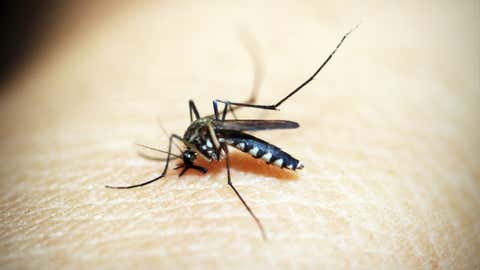Congenital disorders
Mumbai Confirms Zika Case! Learn All About the Virus Lethal For Pregnancy and Infants

Representational image
(IANS)
Mumbai has been thrown into a tizzy after a 79-year-old Chembur resident was reported to have the city’s first case of Zika Virus. While the patient successfully recovered and no other positive patients have been identified so far, the disease could pose a serious threat to pregnant people and their babies in the city if it continues to spread undetected.
Let’s learn more about this mosquito-borne virus and how we can protect ourselves from the disease.
How is Zika transmitted?
While a bite from an infected Aedes mosquito constitutes the primary transmitter to humans, Zika can also be transmitted through sexual contact, blood transfusions, and most famously, from an infected mother to her baby, leading to a plethora of complications during childbirth.
What are the symptoms?
Most people rarely present with symptoms, even when infected with the virus. However, when they do occur — usually 2-7 days after being bitten by the infected mosquito — the symptoms usually remain mild, and express as fevers, rashes, joint and muscle pains, headaches and red eyes. Symptoms typically last a few days to a week.
Effect on pregnancy and birth defects
While mild for most infected people, Zika can have severe adverse consequences during pregnancy, inducing congenital defects and neurological disorders in the baby. This includes microcephaly, a condition where the baby’s head turns out significantly smaller than usual, often due to abnormal brain development.
Zika has also been linked to certain rare autoimmune disorders that induce muscle weakness and paralysis. In babies, it can cause limb contractures, hearing loss and eye abnormalities, among other issues.
Treatment and prevention
The main prevention tip is to, of course, avoid areas where the virus has been detected, especially if you’re pregnant. In addition, take steps to prevent mosquito bites by wearing long-sleeved clothing, using mosquito repellents and staying in air-conditioned areas where mosquito populations are kept in check.
Zika mosquitoes are known to bite during the daytime, so make sure to take preventive measures during these hours as well.
While there are no specific treatments available for the Zika disease, WHO advises infected and symptomatic people to take plenty of rest and drink more fluids. Some symptoms can also be treated via antipyretics or analgesics. Most infected patients recover within a week, while some patients may suffer from its symptoms for over six months.
**
For weather, science, space, and COVID-19 updates on the go, download The Weather Channel App (on Android and iOS store). It’s free!

